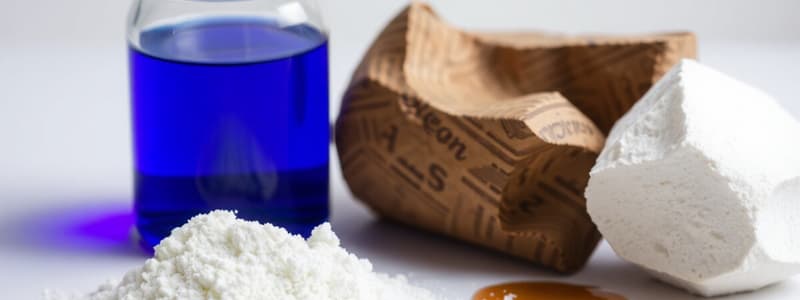Podcast
Questions and Answers
Calcium hydroxide reacts rapidly with carbon dioxide.
Calcium hydroxide reacts rapidly with carbon dioxide.
False (B)
What is the result of applying heat to mercuric oxide?
What is the result of applying heat to mercuric oxide?
- It forms a solid compound
- It forms calcium carbonate
- It breaks into mercury and oxygen (correct)
- It reacts with carbon dioxide
What gas is involved in the decomposition of calcium hydroxide?
What gas is involved in the decomposition of calcium hydroxide?
carbon dioxide
Mercuric oxide decomposes into _______ and _______.
Mercuric oxide decomposes into _______ and _______.
Match the following compounds with their resulting elements upon decomposition:
Match the following compounds with their resulting elements upon decomposition:
Flashcards are hidden until you start studying
Study Notes
Chemical Decomposition Reactions
-
A chemical decomposition reaction occurs when a single compound breaks down into two or more simpler substances.
-
Example 1: Slaked lime, applied to building walls, reacts slowly with carbon dioxide in the air to form a thin layer of calcium carbonate. This is a decomposition reaction as calcium carbonate is formed from slaked lime and carbon dioxide.
-
Example 2: Heating mercuric oxide leads to its decomposition into the elements mercury and oxygen.
Studying That Suits You
Use AI to generate personalized quizzes and flashcards to suit your learning preferences.




